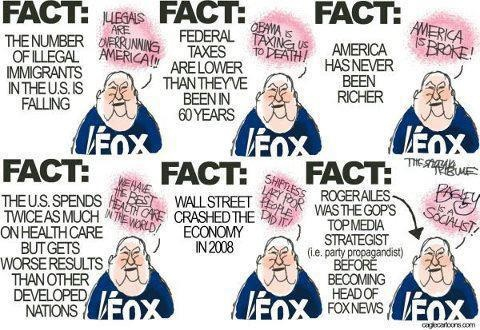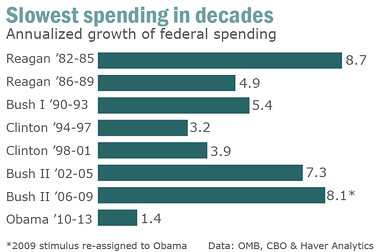A few weeks ago I watched The Newsroom pilot for the first time and the title character is asked an utterly American question, ‘Why do you think America is the greatest country?’ — his response — ‘It’s not’ and in true Aaron Sorkin form offered a whole lot of information to support the argument. I had a small home cheering moment, but the thing that bugs me are exactly these silly assumptions — #1 that the US is still a great country and #2 that we’re the best in the world. Unfortunately, neither assumption is true — we lag in most measurable categories including education, health care, vacation/leisure time, our economy has shifted from a balanced economy to one that has gutted manufacturing and shifted ‘working class’ jobs to a model of inequality focused on poorly paid service sector, even higher education is showing evidence of not being worth the cost. Essentially, we are living in an age of rising inequality in the US.
Yet in the face of this stark reality, Americans remain bizarrely convinced of our overall infallibility and greatness.
Thus….
Quintessential Americanism… defined
So, what do I mean by Quintessential Americanism — very simply, “A blanket refusal to change your opinion, even when confronted with direct evidence to the contrary…”
Why did this come up, in particular right now? Well, my Mom had lunch the other day with two of her friends from high school (they do this for each other’s birthdays and major holidays… it’s very sweet and they have a good time) and is updating them on what I’m doing, etc. since I’m in Germany. At this point in the conversation one of my Mom’s friends says that Germany’s on the brink of economic collapse, unemployment is dire here, oh my goodness, yadda yadda yadda. My Mom tries to respond with the stuff she and I’ve been talking about (e.g., quality of life, economic growth projections, the very low unemployment here … that kind of thing) but her friend will have none of it because Fox News said…
Obviously, Americans aren’t the only ones who are dogmatic — frankly all societies have quirky stupidity, but we seem to revel in our own ignorance and arrogance combined — that’s the heart of this ‘quintessential Americanism’ — we’re confident and we don’t have a good reason to be. FFS … opinions and facts should not be confused… the latter should inform the former — not the other way around.
Why is it so hard for Americans to not only be informed but also be open to new information? Of course, all peoples’ have blind spots and annoying belief structures (that’s the nature of the social animal); however, Americans are increasingly less informed, more dogmatic, and more rigid in our ways of thinking. We’ve been indoctrinated since really the McCarthy witch hunt for Commies and more recently with the GW Bush Administration to believe that if someone criticizes Uh-Mer-Ika or Uh-Mer-Ikans they’re not a patriot because those in power have a much easier time maintaining order and control when people are not engaged nor informed about basic social, economic, and political issues. There is no GOOD reason that the US can’t and shouldn’t be the country we once were (economically at least… I do think we have ups and downs in our social and political system over the years), but there are a whole lot of bad reasons — the ignorance of average Americans, our poor education system, our systematic disenfranchisement of the poor and working class, our shift away from a balanced economy, a media that simply doesn’t work, and an ethic in the US that would silence anyone who would have the audacity to suggest we could do better.
When I posted a quick frustrated comment about this on Facebook yesterday, someone I would have thought would have better sense responds to me with the following:
i wonder if anyone has attempted studies to test that claim. a cursory google search yields nothing, but it seems like it’s taken for gospel among so many people that i can’t help but wonder.
It seems it’s basically the liberal side of the house’s answer to “the average gun and freedom loving American,” except it’s “the average American moron who can’t think for his or her self.” both have this weird privilege of being viewed as hard fact despite their near-caricature status. Maybe it’s b/c i’ve never lived in middle america but I can’t think of a place I’ve lived where I could say anywhere near the majority of people I was around fit either description.
This is someone, who should frankly know better than to claim a “uh, I couldn’t find anything and therefore, it’s probably wrong” kind of response; unfortunately, this is also a person who represents a very typical American response to critique of the US/policy/Americans — they’re quick to dismiss and not really that interested in engagement.
But leaving the hard evidence aside for a moment (oh, don’t worry, I’ll come back to it :) ) — what’s made me come to this conclusion? Is it because I’m a liberal who sheepishly follows talking points set out by the oh-so-coordinated ‘liberal agenda’ people? LMAO… not so much. I have literally lived from coast to coast in the US and north to south — mostly living and being around working class folks. Add in 15 years of teaching at a range of institutions of higher education from flagship state institutions, to small/local state institutions, to city-run colleges, and private colleges I have a pretty good sample of the general knowledge base of average 18 to now about 35 year olds (geez I’m getting old) that I have taught and/or coached. And then, I have the nearly innumerable random “pub” conversations about life and people with folks from all walks of life. I’m pretty confident in my understanding of different demographics in the US (and that doesn’t even count the actual research I’ve done on American demographics, attitudes, and belief structures). I’ve lived with someone from a different country (who comes from a working class background and can compare his blue collar parents with my blue collar parents) since 2006, traveled and talked with lots of folks (sustained and policy-based conversations) from lots of places, and now, I’ve had a chance to spend about 3 months immersed in a seriously working class/ struggling part of the UK and 5 months mostly in rural Germany (nice thing about not working, you get to know the community and locals) and outside of the ‘academic’ knowledge, my personal knowledge seems to verify it. Why does that matter? Well, it doesn’t/ shouldn’t to most folks… only tells me that from a variety of sources, I can feel comfortable with my conclusions.
But what about the hard evidence? Are Americans really less informed than people in other countries about politics, policy, social issues, etc.?
In two words — hell yes!
A quick peak at the evidence and keep in mind, while I haven’t done an exhaustive search, I’ve also NEVER run across ANY hard evidence to the contrary….
- Stupidity seems to have become a virtue in the US where we’re more likely to vote for a contestant on American Idol than a presidential candidate.
- Americans are ignorant showing a lack of critical knowledge about current events, are disinclined to do the work to find out about the world, we’re inclined to believe what we want, regardless of the facts, we’re so shortsighted that we’re willing to support mutually contradictory policy, and we’re susceptible to irrational biases and fear.
- Average Americans are poorly informed about public policy issues and sadly have been for the last 50 years. This includes being less informed than citizens from comparable countries.
- America is the most geographically illiterate major society.
- A closer study comparing Americans and the Swiss revealed that one of the causes of our relative ignorance is that our media fails to provide us with substantial hard news. In fact, if folks watch Fox News, they’re less informed than if they watched no news at all. But, there are also distortions from other news agencies like MSNBC — alarmingly though, The Daily Show actually was more informative than both. Bottom line — an entertainment-centered market driven media leaves us poorly informed and that IS the American Media.
And how about outcomes or consequences of Quintessential Americanism? There are tons; however, I’ll give four examples…
- We are simply uninformed about climate change — lagging behind the rest of the western world. This prevents policies that would actually be in the interests of all from being enacted.
- Misperceptions (i.e., ignorance) about the war in Iraq shaped initial American public support for the ill-conceived action in Iraq that’s cost so many American, Iraqi, and Coalition lives. And let’s not forget the estimated $1.7 trillion in cash outlaid for the war and because the war was financed through debt, up to $6 trillion with interest over the next 40 years. That investment in the US would have converted basically 100% of American energy consumption to renewable. Awesome.
- We blindly support the “drug war” despite evidence that not only is it ineffective, but counterproductive when comparing rates of marijuana and heroine use, rates of incarceration, per capita spending on the criminal justice system, and homicide rates between the US and the Netherlands.
- Hell — we’re still confused on creationism vs. evolution … can it get any more basic than that?
American ignorance is dangerous — mostly to ourselves, but not exclusively to ourselves. Wouldn’t it be nice if being patriotic meant actually wanting to critically examine the US, without the veil of “taking our country back” or any of the other crazy bullshit that people articulate? Wouldn’t it be nice if we could elevate the level of conversation so that we could examine what’s working and the vast amount of stuff that isn’t? But we’re not there yet.
Instead, we continue to dumb down everything. Awesome job you quintessential Americans!


